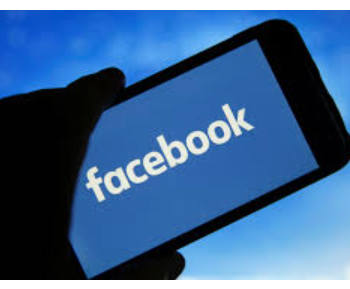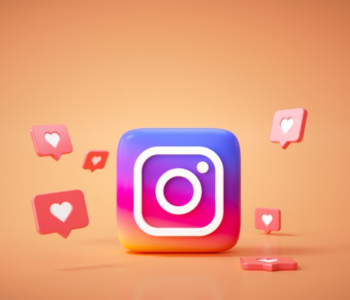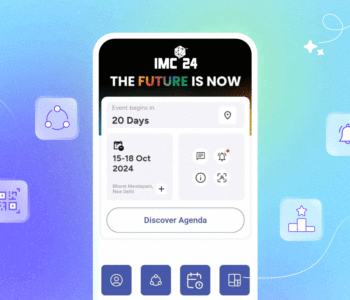 Technology
Technology
A Guide to Chatbot Marketing: Examples Tips & Benefits
Chatbots have become a vital tool for businesses looking to connect with customers in a fast and efficient way. As digital interactions grow, chatbots can handle customer inquiries, guide users through processes, and offer tailored recommendations.
In this guide, we’ll break down how chatbot marketing works, share some real-world examples, provide useful tips, and highlight the benefits of using chatbots for your business. If you’re looking to take your chatbot strategy to the next level, consider hiring a top chatbot marketing agency to help you implement and optimize the perfect solution.
What is Chatbot Marketing?
Chatbot marketing refers to using automated messaging systems—chatbots—to engage with customers and guide them through various stages of their journey. These bots can simulate human conversations, answer common questions, provide product recommendations, and even help with transactions. Chatbots are used across websites, social media platforms, and messaging apps to enhance customer service and marketing efforts.
Why Use Chatbots in Marketing?
The rise of messaging apps and a shift toward more immediate, conversational interactions have made chatbots an essential tool for many businesses. Here are some key reasons why chatbots are effective in marketing:
- Instant Communication: Chatbots can respond instantly, which is particularly useful for customers who expect quick answers.
- Cost-Effective: Once set up, chatbots handle numerous interactions without the need for additional human resources, cutting down on labour costs.
- 24/7 Availability: Chatbots can operate around the clock, ensuring that customers always have access to assistance or information.
- Data Collection: Bots can collect and analyze user data, offering valuable insights into customer preferences and behaviours.
Real-World Examples of Chatbots in Marketing
Many businesses have successfully used chatbots to improve their marketing and customer service. Here are a few examples of how different industries apply chatbots:
1. Sephora – Virtual Assistant
Sephora, the global beauty retailer, uses a chatbot called Sephora Virtual Artist to assist customers in choosing makeup products. The bot helps users by offering product recommendations based on their preferences and even allows them to try on products virtually using augmented reality. This type of chatbot not only boosts sales by suggesting products but also enhances the shopping experience.
2. H&M – Style Assistant
H&M’s chatbot helps customers find fashion items based on their preferences, size, and style. By asking a few simple questions, the bot can recommend outfits, offer discounts, and even help users locate nearby stores. This use of chatbots simplifies the shopping experience and makes it easier for customers to find exactly what they’re looking for.
3. Domino’s Pizza – Order Tracker
Domino’s Pizza uses a chatbot named “Dom” that allows customers to place orders, track deliveries, and ask questions about their orders. Dom simplifies the ordering process, making it quick and easy for users to place a pizza order through a messaging app or on the website.
4. Mitsubishi – Lead Generation
Mitsubishi’s chatbot is designed to capture leads by asking visitors questions about the cars they are interested in. By offering tailored recommendations and guiding users through the purchasing process, Mitsubishi has successfully used chatbots to increase its sales inquiries.
Tips for Effective Chatbot Marketing
While chatbots can be highly effective, they need to be set up and used properly to deliver value. Here are some tips for getting the most out of your chatbot marketing efforts:
1. Keep Conversations Simple
One of the key advantages of chatbots is their ability to provide instant responses. However, a chatbot can only be effective if it offers clear, simple responses that users can easily understand. Avoid overly complicated dialogue and focus on providing quick, concise answers to customer questions.
2. Use Chatbots for Lead Qualification
Rather than relying on a chatbot to handle every aspect of customer service, use it as a tool to qualify leads. For example, ask potential customers a few questions to determine their interests, and then direct them to the appropriate team or offer a targeted promotion. This helps ensure that your human team can focus on high-priority leads.
3. Integrate with Other Channels
Chatbots can work well across different platforms, such as websites, social media pages, and messaging apps. To make the most of your chatbot marketing, consider integrating it with multiple channels to ensure customers can reach you from anywhere. This way, users can start a conversation on one platform and continue it on another, without losing context.
4. Provide a Clear Option to Talk to a Human
While chatbots can handle a lot of tasks, there will always be times when customers need a more personal touch. Ensure your chatbot provides an easy way for users to escalate to a human agent when necessary. This can help prevent frustration and ensure that users feel supported throughout their journey.
5. Focus on User Experience (UX)
The design and flow of your chatbot are crucial to its success. Make sure it’s easy for users to follow along, and ensure the chatbot doesn’t overwhelm them with too many options or too much information. A good user experience will lead to higher engagement and satisfaction.
6. Analyze Performance and Adjust
After launching your chatbot, it’s important to track its performance and adjust as needed. Most chatbot platforms offer analytics that can show how users are interacting with the bot, where they drop off, and which parts of the conversation may need improvement. Regularly reviewing this data will help you refine the bot and keep it relevant to customer needs.
Benefits of Chatbot Marketing
Using chatbots in marketing offers many benefits for businesses and their customers. Here are some of the most notable advantages:
1. Improved Customer Engagement
Chatbots can help businesses engage with customers in a way that feels more personal and immediate. With quick responses and 24/7 availability, they can increase engagement and keep users interested in your brand.
2. Increased Sales
By offering personalized product recommendations, answering questions about products or services, and helping customers make decisions, chatbots can drive higher sales. Additionally, they can automate the sales process, making it easier for customers to make purchases without needing to speak to a representative.
3. Time-Saving
Chatbots save time for both businesses and customers. For customers, they provide instant responses and reduce wait times. For businesses, they handle routine inquiries and tasks, freeing up staff to focus on more complex issues.
4. Cost Savings
As mentioned earlier, chatbots can reduce the need for a large customer service team. With the ability to handle hundreds or even thousands of interactions simultaneously, chatbots can help businesses scale their operations without hiring additional staff.
5. Better Data Insights
Chatbots can gather valuable data during interactions with users, such as preferences, browsing behaviour, and purchase history. This information can be analyzed to understand customer needs better, adjust marketing strategies, and improve overall service.
6. Consistency in Responses
With chatbots, businesses can ensure that customers receive consistent answers every time. There’s no variation or confusion in how the chatbot responds, which helps maintain brand integrity and improves the customer experience.
Final Thoughts on Chatbot Marketing
Chatbots have proven to be a game-changer in marketing by improving communication, enhancing customer experience, and driving conversions. By using them effectively, businesses can offer more efficient service, increase sales, and collect valuable customer data. Whether you’re a small business or a large enterprise, a well-designed chatbot can help you stay competitive in an increasingly digital world.
Remember to keep your chatbot simple, personalise interactions, and analyze its performance regularly to ensure it continues to meet the needs of your customers. By following these steps, you can take full advantage of chatbot marketing and boost your business’s success.






